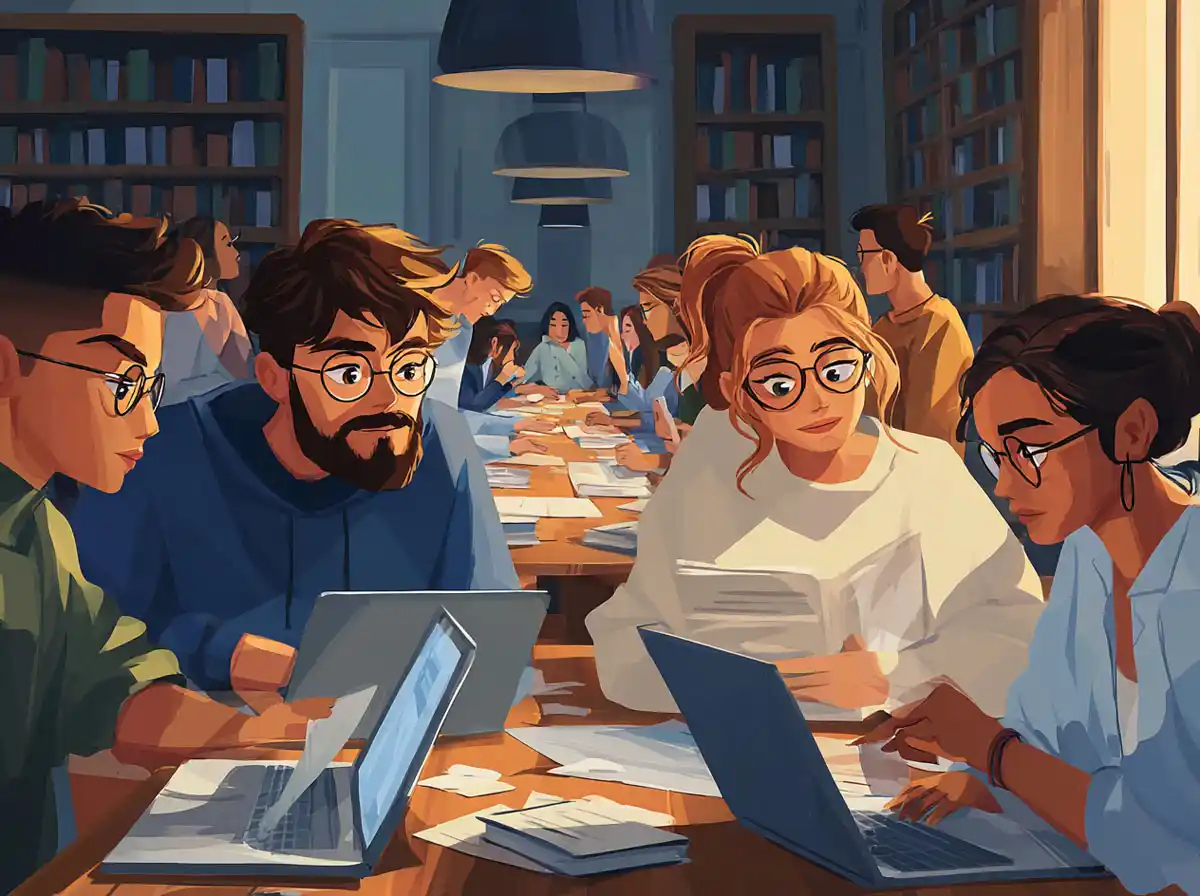The Literary Giants of Berlin
When one thinks of German literature, names like Johann Wolfgang von Goethe and Friedrich Schiller often come to mind. While these literary giants were not Berliners, their influence permeates every corner of German-speaking Europe, including Berlin. However, Berlin has its own share of literary legends who have left an indelible mark on the German language.
Theodor Fontane
One of Berlin’s most celebrated literary figures is Theodor Fontane. Known for his realistic portrayal of 19th-century Berlin, Fontane’s novels are a window into the social and cultural milieu of his time. His most famous work, “Effi Briest,” is often compared to Flaubert’s “Madame Bovary” and Tolstoy’s “Anna Karenina.” Reading Fontane’s works can help learners grasp the nuances of German sentence structure and vocabulary while immersing themselves in the historical context of Berlin.
Alfred Döblin
Another significant figure is Alfred Döblin, whose novel “Berlin Alexanderplatz” is considered one of the most important works of 20th-century German literature. The novel offers a gritty, realistic portrayal of Berlin in the late 1920s and early 1930s, a period of immense political and social upheaval. Döblin’s use of language is complex and layered, making it a challenging but rewarding read for advanced German learners.
Exploring Berlin Through Its Literary Cafés
Berlin’s literary traditions are not confined to the pages of books. The city has a long history of literary cafés, where writers, poets, and intellectuals would gather to discuss their work and ideas. These cafés were often the breeding grounds for literary movements and provided a space for creative exchange.
Café Griensteidl and Café des Westens
During the early 20th century, Café Griensteidl and Café des Westens were two of the most famous literary cafés in Berlin. Writers like Bertolt Brecht, Erich Kästner, and Else Lasker-Schüler were regular patrons. Visiting these historic cafés, many of which still exist today, can provide a tangible connection to Berlin’s literary past and offer a unique setting for language practice.
Modern Literary Cafés
Today, Berlin boasts a vibrant café culture that continues to support and nurture literary talents. Modern literary cafés like Café Buchhandlung and Café Tasso host regular readings and book discussions, providing a platform for contemporary writers and poets. Attending these events can be an excellent way to practice listening comprehension and engage with the local literary community.
Berlin’s Literary Festivals
Berlin hosts several literary festivals throughout the year, each offering a unique opportunity to immerse oneself in the German language and literary culture.
International Literature Festival Berlin (ILB)
The International Literature Festival Berlin (ILB) is one of the most prominent literary events in the city. Held annually in September, the festival features readings, discussions, and workshops with authors from around the world. For language learners, attending the ILB can be a fantastic way to hear contemporary German literature read aloud and to participate in discussions about current literary trends.
Poesiefestival Berlin
For poetry enthusiasts, the Poesiefestival Berlin is a must-attend event. This week-long festival, usually held in June, brings together poets from around the globe for readings, performances, and workshops. The festival’s multilingual format can help learners appreciate the rhythm and sound of the German language, making it a valuable experience for improving listening and pronunciation skills.
Interactive Language Learning Through Berlin’s Literary Sites
Exploring Berlin’s literary sites offers an interactive way to learn German, combining language practice with cultural immersion.
The Brecht-Weigel House
The Brecht-Weigel House, located in the district of Mitte, was the home of playwright Bertolt Brecht and his wife, actress Helene Weigel. Today, it serves as a museum dedicated to their lives and work. A visit to this historic site can provide insight into Brecht’s influential plays and theories, enriching one’s understanding of German theater and literature.
The Literaturhaus Berlin
The Literaturhaus Berlin is another essential stop for literary enthusiasts. Housed in a beautiful 19th-century villa, the Literaturhaus hosts readings, lectures, and exhibitions. It also boasts a well-stocked bookstore and a charming café, making it an ideal spot for language learners to practice reading and conversation skills in a literary setting.
Contemporary Berlin Authors
While the classics provide a solid foundation, contemporary Berlin authors offer fresh perspectives and current language usage.
Judith Hermann
One of the most prominent contemporary writers from Berlin is Judith Hermann. Her short stories and novels, such as “Sommerhaus, später” and “Aller Liebe Anfang,” are known for their precise language and evocative imagery. Reading Hermann’s works can help learners understand modern colloquial expressions and everyday language in a Berlin context.
Thomas Brussig
Another notable contemporary author is Thomas Brussig, whose novel “Am kürzeren Ende der Sonnenallee” provides a humorous yet poignant look at life in East Berlin before the fall of the Berlin Wall. Brussig’s witty and accessible writing style makes his works an excellent choice for intermediate learners looking to expand their vocabulary and comprehension skills.
Utilizing Technology for Literary Language Learning
In the digital age, technology offers numerous tools to enhance language learning through literature.
E-books and Audiobooks
E-books and audiobooks provide a convenient way to access German literature. Many classic and contemporary works are available in digital formats, allowing learners to read or listen to German texts on the go. Audiobooks, in particular, can help improve listening comprehension and pronunciation.
Language Learning Apps
Several language learning apps incorporate literature into their curriculum. Apps like LingQ and Duolingo offer stories and excerpts from German literature, providing interactive exercises to reinforce vocabulary and grammar. These apps can be a valuable supplement to traditional language learning methods.
Conclusion
Learning German through Berlin’s literary traditions offers a rich and multifaceted approach to language acquisition. By engaging with the works of Berlin’s literary giants, exploring historic and modern literary cafés, attending literary festivals, visiting literary sites, and reading contemporary authors, learners can immerse themselves in the language and culture of Berlin. Utilizing technology further enhances this experience, making it accessible and interactive. Whether you’re a beginner or an advanced learner, Berlin’s literary heritage provides a compelling and enjoyable pathway to mastering the German language.










